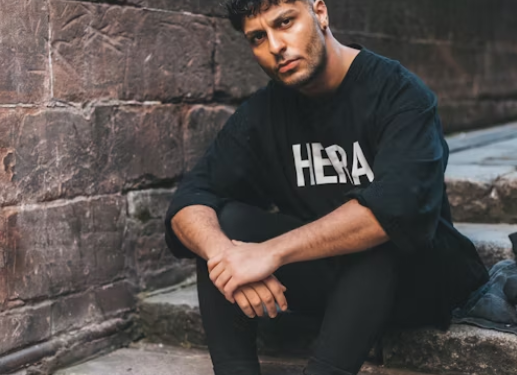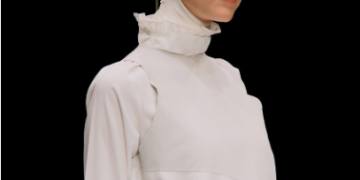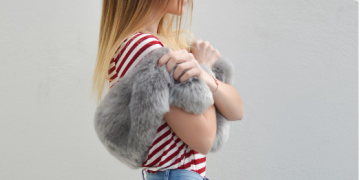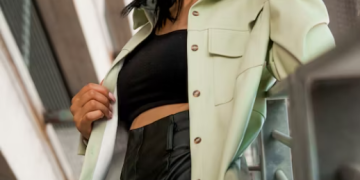Introduction to Fair Trade
Fair trade is a movement that seeks to promote equitable trading partnerships between producers in developing countries and consumers in developed nations. It is based on the principles of fair wages, sustainable development, and social and environmental responsibility. In today’s globalized economy, fair trade plays a crucial role in addressing disparities in wealth and opportunity and fostering sustainable development.
The Intersection of Fair Trade and Fashion
In recent years, there has been a growing awareness of the ethical implications of fashion production. From the exploitation of garment workers to the environmental degradation caused by mass production, the fashion industry faces numerous challenges in ensuring ethical and sustainable practices. Fair trade principles offer a framework for addressing these issues and promoting positive change within the industry.
Social Impact of Ethical Fashion
One of the key benefits of ethical fashion is its potential to empower marginalized communities, particularly women and artisans in developing countries. By providing fair wages, safe working conditions, and opportunities for skill development, ethical fashion brands can help lift people out of poverty and promote social inclusion. Additionally, ethical fashion encourages greater respect for cultural traditions and craftsmanship, preserving heritage and promoting cultural diversity.
Economic Impact of Ethical Fashion
Ethical fashion also has significant economic benefits for communities involved in production. By ensuring fair compensation for artisans and workers, ethical fashion brands contribute to economic stability and growth in developing countries. This can lead to improved standards of living, increased access to education and healthcare, and greater economic independence for individuals and communities. Moreover, ethical fashion promotes local entrepreneurship and sustainable business practices, fostering long-term economic development and resilience.
Environmental Impact of Ethical Fashion
In addition to its social and economic benefits, ethical fashion has a positive impact on the environment. Sustainable production practices, such as using organic and recycled materials, minimizing waste, and reducing energy consumption, help mitigate the environmental harm caused by conventional fashion production. By prioritizing sustainability and eco-friendly alternatives, ethical fashion brands contribute to the preservation of natural resources and the protection of ecosystems for future generations.
Challenges and Criticisms of Ethical Fashion
Despite its many benefits, ethical fashion faces several challenges and criticisms. Balancing ethical considerations with profitability can be difficult for brands, particularly smaller businesses with limited resources. Additionally, ensuring transparency and accountability throughout the supply chain remains a significant challenge, as issues such as subcontracting and greenwashing can undermine trust and credibility within the industry.
Role of Consumers in Supporting Ethical Fashion
Consumers play a crucial role in driving demand for ethical fashion and holding brands accountable for their practices. By choosing to support brands that prioritize transparency, sustainability, and social responsibility, consumers can send a powerful message to the fashion industry and encourage positive change. Demand for ethically produced clothing is on the rise, reflecting a growing awareness of the social and environmental impacts of fashion consumption.
Government and Regulatory Support for Fair Trade
Government policies and regulations also play a key role in supporting fair trade practices within the fashion industry. From labor standards and environmental regulations to trade agreements and certifications, policymakers have the ability to incentivize ethical behavior and hold companies accountable for their actions. International agreements such as the Fair Trade Certification and initiatives like the Ethical Trading Initiative provide frameworks for promoting fair trade practices and protecting the rights of workers and producers.
Case Studies of Successful Fair Trade Initiatives
Numerous brands and organizations have demonstrated the positive impact of fair trade initiatives within the fashion industry. Companies such as Patagonia, People Tree, and Eileen Fisher have implemented fair trade practices throughout their supply chains, providing fair wages, safe working conditions, and environmental sustainability. These initiatives have not only benefited local communities and economies but also served as models for ethical business practices across the industry.
Future Trends in Ethical Fashion
Looking ahead, the future of ethical fashion is bright, with ongoing innovations in sustainable materials, production methods, and business models. As consumers become increasingly conscious of the social and environmental impacts of their purchasing decisions, demand for ethical and sustainable clothing is expected to continue growing. This presents opportunities for brands to differentiate themselves in the market and contribute to positive social and environmental change.
Ethical Fashion Beyond Borders
Ethical fashion is a global movement that transcends borders and cultural boundaries. Collaboration and cooperation among stakeholders, including brands, producers, governments, and consumers, are essential for addressing systemic issues within the fashion industry and driving meaningful change. By working together, we can create a more inclusive, equitable, and sustainable fashion industry that benefits people and the planet.
The Power of Ethical Consumption
Ultimately, the power to shape the future of fashion lies in the hands of consumers. By making informed choices and supporting brands that prioritize ethics and sustainability, individuals can contribute to positive change within the industry. Every purchase has the potential to make a difference, whether it’s supporting fair trade practices, reducing environmental impact, or promoting social justice. Together, we can harness the power of ethical consumption to create a more just, equitable, and sustainable world.
Conclusion
In conclusion, ethical fashion has the potential to transform the global fashion industry and create positive impact for communities around the world. By embracing fair trade principles and prioritizing ethics, sustainability, and social responsibility, brands can help build a more equitable and sustainable future for fashion. As consumers, we have the power to drive change through our purchasing decisions and support brands that align with our values. Together, we can create a fashion industry that celebrates diversity, respects human rights, and protects the planet for generations to come.

FAQs:
- What is fair trade and how does it relate to fashion?
- Fair trade promotes equitable trading partnerships between producers in developing countries and consumers in developed nations, ensuring fair wages, safe working conditions, and environmental sustainability. In the fashion industry, fair trade principles help address issues such as exploitation, inequality, and environmental degradation.
- How does ethical fashion benefit communities in developing countries?
- Ethical fashion provides economic opportunities for marginalized communities, promotes social inclusion, and fosters sustainable development. By ensuring fair wages, safe working conditions, and access to education and healthcare, ethical fashion brands empower individuals and improve standards of living in developing countries.
- What challenges does ethical fashion face?
- Ethical fashion faces challenges such as balancing ethics with profitability, ensuring transparency and accountability throughout the supply chain, and addressing systemic issues within the industry. Issues such as greenwashing and subcontracting can undermine trust and credibility within the ethical fashion movement.
- How can consumers support ethical fashion?
- Consumers can support ethical fashion by choosing to purchase from brands that prioritize transparency, sustainability, and social responsibility. By making informed choices and advocating for positive change, consumers can help drive demand for ethical and sustainable clothing and hold brands accountable for their practices.
- What are some examples of successful fair trade initiatives in the fashion industry?
- Brands such as Patagonia, People Tree, and Eileen Fisher have implemented fair trade practices throughout their supply chains, providing fair wages, safe working conditions, and environmental sustainability. These initiatives have not only benefited local communities and economies but also served as models for ethical business practices across the industry.













